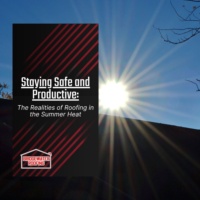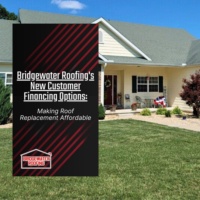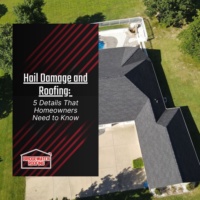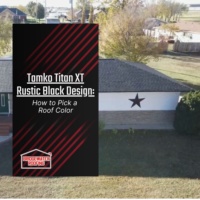Blog
Blog
- Published on

Staying Safe and Productive: The Realities of Roofing in the Summer Heat
Tackling unique summer challenges with smart planning, teamwork, and a commitment to safety and well-being
- Published on

Catching the Undetected: Storm Damage Roof Inspections
Undetected storm damage, like granule loss, can silently undermine a roof’s integrity - leading to expensive repairs and even premature roof failure.
- Published on

Bridgewater Roofing's New Customer Financing Options: Making Roof Replacement Affordable
At Bridgewater Roofing, we’re proud to offer customized customer financing options designed to fit any budget, making roofing projects accessible and stress-free.
- Published on

Hail Damage and Roofing: 5 Details That Homeowners Need to Know
When severe weather strikes, your roof is the first line of defense. Understand the importance of protecting your investment and ensuring your family's safety with Bridgwater Roofing
- Published on

Tamko Titan XT Rustic Black Design: How to Pick a Roof Color
- Published on

When to Replace Your Roof Shingles: A Comprehensive Guide
Knowing when to replace your roof shingles is essential for protecting your home, so here are 3 key indicators to watch for